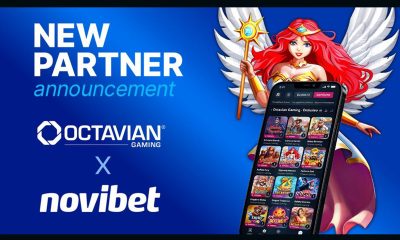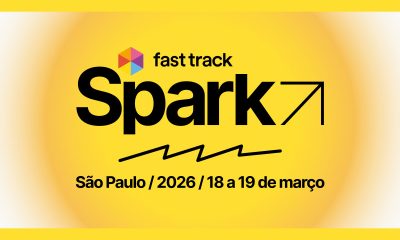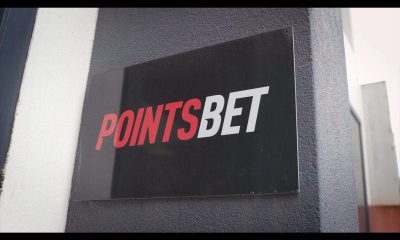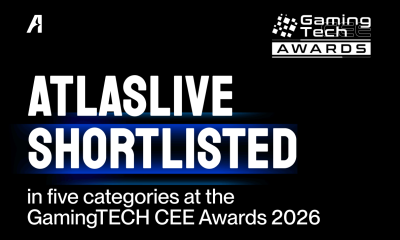Latest News
Revealed: worst areas in England for gamers during lockdown

- South West bottom of the pile for broadband speeds, with five of the ten areas where gamers are most likely to disrupt gameplay
- Cities of London and Westminster the worst area for access to superfast broadband
- Kingston Upon Hull ranks the highest for the best place to play video games online based on average speeds and availability of superfast broadband
New research from comparethemarket.com reveals the areas in England that are the worst for gamers, with gameplay in Central Devon the most likely to be disrupted due to poor broadband speeds.
The research analyses the average download speed (Mbps), superfast broadband availability and the percentage of households’ ability to receive decent broadband.
Gamers based in the South West score the least points when it comes to connection speed, with five out of the top ten worst hit areas in England. With Central Devon having the dubious distinction of being the worst in the country, Torridge and West Devon, Forest of Dean, Somerton and Frome, and Tiverton and Honiton all suffer disruption from poorer broadband speeds.
Some may be surprised to see the Cities of London and Westminster ranked the 10th worst constituency for gamers overall. When it comes to access to superfast broadband, this area takes the last place out of all areas, with a quarter unable to access the very fastest connection. By comparison, in Luton North and Leicester West, superfast broadband availability is 100%.
Kingston Upon Hull is hailed as the best place for gamers, ranking top in the country for average speeds and the availability of superfast broadband. Less than 2% of the area’s households have access to decent broadband. Other cities areas that rank highly for gamers include Grimsby, Gillingham and Rainham in the South East, and Nottingham North in the East Midlands.
Top 10 – England’s worst areas for gamers
|
Rank |
Area Name | Region | Average speed (MBPS) | Superfast availability | Unable to receive decent broadband |
| 10 | Cities of London and Westminster | London | 34.41 | 75% | 0% |
| 9 | Somerton and Frome | South West | 42.75 | 82% | 10% |
| 8 | Harwich and North Essex | East of England | 37.06 | 83% | 9% |
| 7 | Tiverton and Honiton | South West | 31.89 | 81% | 9% |
| 6 | North Herefordshire | West Midlands | 35.09 | 80% | 9% |
| 5 | Penrith and The Border | North West | 36.01 | 81% | 12% |
| 4 | Ludlow | West Midlands | 33.09 | 81% | 11% |
| 3 | Forest of Dean | South West | 31.61 | 79% | 10% |
| 2 | Torridge and West Devon | South West | 34.01 | 81% | 12% |
| 1 | Central Devon | South West | 34.05 | 77% | 12% |
Top 10 – England’s best areas for gamers
|
Rank |
Area Name | Region | Average speed (MBPS) | Superfast availability | Unable to receive decent broadband |
| 1 | Kingston upon Hull East | Yorkshire and The Humber | 137.44 | 99% | 1% |
| 2 | Kingston upon Hull North | Yorkshire and The Humber | 132.15 | 100% | 1% |
| 3 | Kingston upon Hull West and Hessle | Yorkshire and The Humber | 122.24 | 99% | 2% |
| 4 | Crawley | South East | 88.40 | 99% | 0% |
| 5 | Filton and Bradley Stoke | South West | 93.49 | 98% | 1% |
| 6 | Luton North | East of England | 84.10 | 100% | 0% |
| 7 | Morecambe and Lunesdale | North West | 87.70 | 99% | 0% |
| 8 | Great Grimsby | Yorkshire and The Humber | 89.56 | 98% | 1% |
| 9 | Stevenage | East of England | 86.93 | 99% | 0% |
| 10 | Gillingham and Rainham | South East | 86.61 | 99% | 0% |
Holly Niblett, head of digital at comparethemarket.com, commented:
“Lockdown has seen a surge in the number of people relying on the internet for work and leisure. There is a wide disparity in the connection speeds and access to superfast broadband across the country, with people facing a particularly hostile environment in parts of the south west. For many, a reliable internet connection is a lifeline during a difficult time.
“Our new speed-test tool allows people to see how fast their broadband speed is and what better deals and speed is available in their area, because for many households, a fast download speed is a deal-breaker when it comes to choosing a provider. Perhaps unsurprisingly, we have seen a steep rise in the number of customers switching online to the fastest packages during isolation.”
comparethemarket’s tips for improving your broadband speed:
1. Test the speed of your broadband connection
You can run a speed test on comparethemarket’s new speed-checker tool, which enables users to check how long it will take to download a film or game in their area: http://www.comparethemarket.com/broadband/speed-test You’ll be shown both your download and upload speeds.
2. Move your router away from other devices
Keep your router as far away as possible from other electrical equipment and devices that emit wireless signals, such as cordless phones, baby monitors and computer speakers. Try to place your router on a table or shelf rather than on the floor and keep it switched on.
3. Turn off WiFi on devices you’re not using
If you have multiple devices such as tablets and smartphones running in the background, it can slow down your broadband, so try switching WiFi off on these when you’re not using them. You should also avoid carrying out data-heavy tasks like HD streaming, gaming or video calls at the same time as others in your household.
4. Give your computer a spring clean
There are many applications on your PC that could affect your broadband speed, some without you even realising it. A few simple quick fixes include making sure your anti-virus software is up to date, making sure you’re using the latest version of your web browser, such as Chrome, Firefox or Microsoft Edge and clearing your cache and browser history.
For more information on the research, please go to: https://www.comparethemarket.com/broadband/content/best-cities-in-england-for-gamers/
Methodology:
The following table reveals the areas of England where gamers are most likely to disrupt gameplay due to bad broadband speeds.
Data taken directly from the source are in the columns titled Area name, Region, Average speed (MBPS), Superfast availability and unable to receive decent broadband.
To calculate the index we first normalised the data categories individually from 0 to 1 and then summed the results.
On this scale, for
- Average speed – The higher index would be weighted closer to 1 – detailed in the average speed weighting column
- Superfast availability – The higher index is weighted closer to 1 – detailed in the superfast weighting column
- Unable to receive decent broadband – The higher index is weighted closer to 0 – detailed in the Decent broadband weighting column
Total and rankings were determined by the above.
Powered by WPeMatico
apuestas
Expansión de los VLT en Brasil y crecimiento del sector hotelero

Mientras el Congreso Nacional aún debate los detalles finales para la implementación de casinos integrados en resorts, el operador To All Games ejecutó un movimiento estratégico que redefine el concepto de “gaming retail” en Brasil.
Al firmar un acuerdo con el Instituto de Desarrollo, Turismo, Cultura, Deportes y Medio Ambiente (IDT-CEMA), la empresa comenzará a instalar Video Lottery Terminals (VLTs) en hoteles de alta gama.
Este movimiento, anunciado durante SBC Summit Rio, utiliza la licencia operativa emitida por Loterj (Lotería del Estado de Río de Janeiro) para crear una red física de entretenimiento segura y altamente tecnológica.
El proyecto de To All Games no es simplemente una expansión de máquinas.
Es una inversión en infraestructura de gaming dentro del sector hotelero.
Cada terminal está equipada con sistemas de ciberseguridad y monitoreo de ubicación en tiempo real.
Los pagos se aceptan exclusivamente a través de Pix.
Para el sector hotelero, la introducción de estas salas de juego integradas representa un cambio en el modelo de negocio.
Los lobbies y áreas comunes se convierten en centros auxiliares de ingresos que atraen turistas y aumentan el tiempo de permanencia de los huéspedes.
Al llevar el gaming al entorno controlado de los hoteles, To All Games está creando un “caballo de Troya” beneficioso para el turismo.
Demuestra que la coexistencia entre entretenimiento regulado y servicios de lujo es el camino más rápido hacia la aceptación social del gaming físico en Brasil.
El estado como gestor de daños: teleasistencia del SUS a través de “Meu SUS Digital”
Uno de los temas más sensibles y urgentes de 2026 es la salud mental de los apostadores.
El ministro de Salud, Alexandre Padilha, llevó al debate público una dura realidad financiera.
Las apuestas en línea generan pérdidas económicas y sociales estimadas en R$38.8 mil millones por año en Brasil.
Para mitigar este impacto, el gobierno lanzó, en asociación con el Hospital Sírio-Libanês, un servicio de teleasistencia sin precedentes especializado en adicción al juego.
El servicio es accesible a través de la aplicación Meu SUS Digital.
Los usuarios completan un autotest científicamente validado y, si se detecta un riesgo moderado o alto, son derivados automáticamente a consultas por videollamada.
Esta iniciativa prevé inicialmente 600 consultas mensuales con potencial para expandirse a 100,000.
Está compuesta por un equipo multidisciplinario de psicólogos, terapeutas ocupacionales y psiquiatras.
El hecho de que el sistema público de salud brasileño ofrezca hasta 13 sesiones gratuitas por paciente, incluido el apoyo para familiares, cambia el tono de la conversación en torno al iGaming en Brasil.
Para la industria, contar con el apoyo del sistema público no es una amenaza.
Es una protección reputacional.
Un mercado que ofrece tratamiento y autoexclusión centralizada es un mercado que se protege contra crisis de imagen y retrocesos legislativos.
La sostenibilidad del sector en 2026 depende de esta simbiosis entre las ganancias de los operadores y la red de protección social del Estado.
La guerra contra el mercado ilegal: El asedio del 30% restante
A pesar del éxito del mercado regulado, la Secretaría de Premios y Apuestas todavía enfrenta a un enemigo resiliente.
El mercado ilegal aún representa alrededor del 30% del volumen total de apuestas en Brasil.
En 2025, las acciones de fiscalización resultaron en el cierre de más de 25,000 sitios web ilegales.
Sin embargo, el gobierno sabe que el bloqueo de IP por sí solo no es suficiente.
Por esta razón, el primer trimestre de 2026 marca la implementación de responsabilidad solidaria para bancos e instituciones de pago.
Tras la actualización de la Ordenanza 561, las instituciones financieras serán notificadas y responsabilizadas si facilitan transacciones para operadores sin licencia del SPA.
Esta ofensiva técnica y automatizada busca asfixiar el flujo financiero del juego ilegal.
La estrategia del gobierno es hacer que las operaciones clandestinas sean tan riesgosas y costosas que los usuarios migren naturalmente hacia plataformas autorizadas.
Además, el estricto control publicitario en asociación con CONAR y el Consejo Digital busca impedir que los anuncios de sitios ilegales lleguen a redes sociales e influencers.
El enfoque de 2026 es la aplicación efectiva de las normas.
El SPA ya anunció que iniciará severos procesos sancionadores contra cualquier operador autorizado que viole las reglas de protección al consumidor y de prevención de lavado de dinero.
Fútbol e integridad: El impacto de R$1.2 mil millones en patrocinios
El fútbol brasileño es, sin duda, el mayor beneficiario directo de la regulación.
En 2024, los clubes de la Serie A recibieron aproximadamente R$1.2 mil millones en patrocinios de empresas de apuestas.
Esto representa cerca del 35% de los ingresos totales por patrocinio del deporte.
Giovanni Rocco destacó que en 2025 esta relación se consolidó con contratos de largo plazo y mayor previsibilidad financiera para los equipos.
Sin embargo, el volumen de dinero exige un control estricto sobre la integridad deportiva.
El gobierno creó un grupo de trabajo interministerial para formular la Política Nacional de Combate al Match-Fixing.
Más de 500 agentes de seguridad pública ya han sido capacitados en técnicas para detectar fraude en cuotas y monitorear mercados de apuestas.
La idea es que el Ministerio de Deportes anticipe estrategias de prevención a través de inteligencia deportiva, analizando patrones sospechosos en mercados ilegales.
Además, las empresas que comercializan predicciones y análisis estadísticos ahora deben obtener una licencia del SPA para operar legalmente.
Esto garantiza que el ecosistema de datos que rodea al deporte no sea utilizado para inducir errores o facilitar esquemas de corrupción.
Brasil 2026: la nueva realidad del gaming
El cierre de SBC Summit Rio 2026 este jueves 5 de marzo no es simplemente el final de otro evento en el calendario.
Marca el punto cero de una nueva era para el mercado de apuestas en América Latina.
Después de doce meses operando bajo el marco regulatorio completo que entró en vigor el 1 de enero de 2025, Brasil dejó de ser una “promesa de futuro” y se convirtió en el mercado de gaming más complejo y monitoreado del planeta.
Los datos presentados esta semana en el Windsor Convention & Expo Center revelan un mercado que movió R$68 mil millones solo en el último año.
Esto consolida una industria que ahora alcanza directamente a 25 millones de brasileños adultos.
Sin embargo, lo que define marzo de 2026 no es solo el volumen de transacciones.
Es la sofisticación de las capas de control que ahora abarcan desde el sistema financiero a través de Pix hasta la red pública de salud mental.
La anatomía del gigante: una radiografía del mercado brasileño en 2025
La Secretaría de Premios y Apuestas del Ministerio de Hacienda (SPA-MF), bajo el liderazgo de Daniele Correa Cardoso y Giovanni Rocco, presentó un informe que funciona como una brújula para cualquier inversor serio.
El mercado brasileño demostró ser resiliente y extremadamente capilarizado.
Los R$68 mil millones manejados generaron ingresos fiscales directos de R$3.2 mil millones, de los cuales R$800 millones se destinaron inmediatamente al financiamiento de programas deportivos y educativos.
Esta transparencia financiera es el resultado directo de la estructura organizativa del SPA, que opera con la agilidad de una agencia reguladora.
Está dividida en subsecretarías de Autorización, Monitoreo e Inspección, y Acción Sancionadora.
Por primera vez en la historia, el Estado brasileño comprende completamente a los socios, ejecutivos y flujos de caja de cada operador autorizado.
Este nivel de visibilidad permitió identificar que aproximadamente el 11.83% de la población adulta del país realizó al menos una apuesta en 2025.
Pero el éxito numérico trae consigo responsabilidad de control.
El gobierno implementó mecanismos de cruce de registros y bloqueo de transacciones sospechosas en una asociación sin precedentes con el Banco Central y la Policía Federal.
El objetivo para 2026 es claro.
Elevar el cumplimiento normativo a un nivel en el que no respetar los límites de depósito o no comunicar los riesgos resulte en la suspensión inmediata de la licencia, garantizando que solo los operadores más robustos sobrevivan a la fase de consolidación del mercado.
La ofensiva de contenido: Yggdrasil y las exigencias del jugador brasileño
Entre los proveedores tecnológicos, la semana estuvo dominada por Yggdrasil.
La empresa anunció la expansión masiva de su portafolio para operadores como F12, Blaze y Novibet.
La introducción de más de 400 títulos certificados refleja un cambio de comportamiento entre los apostadores brasileños en 2026.
La audiencia ahora es más madura.
Los jugadores entienden la diferencia entre un juego de baja calidad y una experiencia de alta fidelidad con mecánicas de retención sofisticadas.
Esta “guerra de contenido” es la respuesta de los operadores a los altos costos de adquisición de clientes.
En un mercado donde la publicidad es cada vez más restringida y costosa, mantener a los jugadores comprometidos por más tiempo es la única manera de asegurar el retorno de la inversión.
La entrada de proveedores globales como Yggdrasil eleva el estándar de calidad.
Obliga a los operadores locales a invertir en plataformas más robustas, seguras y visualmente atractivas, transformando las apuestas en una experiencia completa de entretenimiento.
Perspectiva regional: el pragmatismo de México, Perú y el modelo chileno
Fuera de Brasil, América Latina también muestra importantes movimientos de consolidación.
En México, Codere Online lanzó su aplicación de Poker para iOS.
Esto indica que los mercados maduros buscan diversificación a través de juegos basados en habilidades para equilibrar los ingresos estacionales de las apuestas deportivas.
En Perú, Mincetur confirmó que la recaudación fiscal récord al inicio de 2026 es el resultado directo de una legislación equilibrada.
El modelo peruano de estabilidad predecible está siendo utilizado como principal argumento en las discusiones finales en el Senado chileno.
Chile busca acelerar su regulación para no perder inversiones frente a vecinos más ágiles.
Estos países observan a Brasil como el “gran experimento”.
Si Brasil logra equilibrar el éxito económico de su mercado de R$68 mil millones con el apoyo social del SUS y la lucha contra el juego ilegal, servirá como base para futuras legislaciones globales.
El pragmatismo chileno y la estabilidad peruana muestran que América Latina se está alejando de ser una región de “fronteras abiertas”.
Se está convirtiendo en un bloque económico de iGaming con reglas claras y alta protección para el capital invertido.
El nacimiento del modelo “gaming 360”
Al analizar los acontecimientos de esta semana, queda claro que Brasil en 2026 está construyendo un modelo que podría llamarse “Gaming 360”.
Es un ecosistema donde la regulación no se ve como un obstáculo.
Es la estructura necesaria para un crecimiento sostenible.
El éxito de To All Games en hoteles, la red de protección del SUS y el rigor fiscal del SPA-MF son los engranajes de una máquina que genera miles de millones en impuestos mientras protege a los ciudadanos y al deporte.
Para los profesionales que trabajan en este mercado, el desafío de 2026 es la adaptabilidad.
Ya no basta con entender de marketing.
Es necesario comprender la regulación financiera, la salud pública y la infraestructura tecnológica.
El mercado brasileño dejó de ser un espacio para amateurs en el momento en que se publicó la primera ordenanza de 2024.
Hoy, quienes sobreviven en Brasil son aquellos capaces de combinar la rentabilidad de una industria multimillonaria con la responsabilidad ética que exige una sociedad cada vez más vigilante.
The post Expansión de los VLT en Brasil y crecimiento del sector hotelero appeared first on Americas iGaming & Sports Betting News.
Blaze
Brazil’s VLT expansion and hospitality growth

While the National Congress still debates the final details for implementing integrated resort casinos, the operator To All Games executed a strategic move that redefines the concept of “gaming retail” in Brazil.
By signing an agreement with the Institute of Development, Tourism, Culture, Sports and Environment (IDT-CEMA), the company will begin installing Video Lottery Terminals (VLTs) in high-end hotels.
This move, announced during SBC Summit Rio, uses the operational license issued by Loterj (Rio de Janeiro State Lottery) to create a safe and highly technological physical entertainment network.
The To All Games project is not merely a machine expansion.
It is an investment in hospitality gaming infrastructure.
Each terminal is equipped with cybersecurity systems and real-time location monitoring.
Payments are accepted exclusively via Pix.
For the hotel sector, the introduction of these integrated gaming rooms represents a change in the business model.
Lobbies and common areas become auxiliary revenue centers that attract tourists and increase guest stay time.
By bringing gaming into the controlled environment of hotels, To All Games is creating a beneficial “Trojan horse” for tourism.
It proves that the coexistence between regulated entertainment and luxury services is the fastest path to social acceptance of physical gaming in Brazil.
The state as damage manager: SUS telecare through “Meu SUS Digital”
One of the most sensitive and urgent topics of 2026 is the mental health of bettors.
Health Minister Alexandre Padilha brought a harsh financial reality to the public debate.
Online betting generates economic and social losses estimated at Us$7,33 billion per year in Brazil.
To mitigate this impact, the government launched, in partnership with Hospital Sírio-Libanês, an unprecedented telecare service specialized in gambling addiction.
The service is accessible through the Meu SUS Digital app.
Users complete a scientifically validated self-test and, if moderate or high risk is detected, they are automatically referred to video consultations.
This initiative initially foresees 600 monthly consultations with the potential to expand to 100,000.
It is composed of a multidisciplinary team of psychologists, occupational therapists and psychiatrists.
The fact that the Brazilian public health system offers up to 13 free sessions per patient, including support for family members, changes the tone of the conversation around iGaming in Brazil.
For the industry, having support from the public system is not a threat.
It is reputational protection.
A market that offers treatment and centralized self-exclusion is a market that protects itself against image crises and legislative setbacks.
The sustainability of the sector in 2026 depends on this symbiosis between operator profit and the state’s social protection network.
The war against the illegal market: The siege of the remaining 30%
Despite the success of the regulated market, the Secretariat of Prizes and Betting still faces a resilient enemy.
The illegal market still represents around 30% of the total betting volume in Brazil.
In 2025, enforcement actions resulted in the shutdown of more than 25,000 illegal websites.
However, the government knows that IP blocking alone is not enough.
For this reason, the first quarter of 2026 marks the implementation of joint liability for banks and payment institutions.
Following the update of Ordinance 561, financial institutions will be notified and held accountable if they facilitate transactions for operators without an SPA license.
This technical and automated offensive aims to suffocate the financial flow of illegal gambling.
The government strategy is to make clandestine operations so risky and costly that users naturally migrate to authorized platforms.
In addition, strict advertising control in partnership with CONAR and the Digital Council aims to prevent illegal site ads from reaching social networks and influencers.
The focus of 2026 is effective rule enforcement.
The SPA has already announced that it will initiate severe sanctioning processes against any authorized operator that violates consumer protection and anti-money laundering rules.
Football and integrity: The impact of US$240 million in sponsorships
Brazilian football is undoubtedly the biggest direct beneficiary of regulation.
In 2024, Serie A clubs received approximately US$240 million in sponsorships from betting companies.
This represents about 35% of the sport’s total sponsorship revenue.
Giovanni Rocco highlighted that in 2025 this relationship consolidated with long-term contracts and greater financial predictability for teams.
However, the volume of money requires strict control over sports integrity.
The government created an interministerial working group to formulate the National Policy to Combat Match-Fixing.
More than 500 public security agents have already been trained in techniques for detecting odds fraud and monitoring betting markets.
The idea is for the Ministry of Sports to anticipate prevention strategies through sports intelligence, analyzing suspicious patterns in illegal markets.
Additionally, companies that commercialize predictions and statistical analyses must now obtain an SPA license to operate legally.
This ensures that the data ecosystem surrounding sports is not used to induce error or facilitate corruption schemes. Brazil 2026: The new reality of gaming
The closing of SBC Summit Rio 2026 this Thursday, March 5, is not merely the end of another event on the calendar.
It marks the ground zero of a new era for the betting market in Latin America.
After twelve months of operating under the full regulatory framework that came into force on January 1, 2025, Brazil has stopped being a “promise for the future” and has become the most complex and closely monitored gaming market on the planet.
Data presented this week at the Windsor Convention & Expo Center reveals a market that moved R$68 billion in the past year alone.
This consolidates an industry that now directly reaches 25 million adult Brazilians.
However, what defines March 2026 is not only the transaction volume.
It is the sophistication of the control layers that now involve everything from the financial system through Pix to the public mental health network.
The anatomy of the giant: A 2025 x-ray of the Brazilian market
The Secretariat of Prizes and Betting of the Ministry of Finance (SPA-MF), under the leadership of Daniele Correa Cardoso and Giovanni Rocco, presented a report that serves as a compass for any serious investor.
The Brazilian market proved to be resilient and extremely capillarized.
The c handled generated direct tax revenue of US$640 million, of which US$160 million was immediately directed to the financing of sports and educational programs.
This financial transparency is the direct result of the SPA’s organizational structure, which operates with the agility of a regulatory agency.
It is divided into subsecretariats for Authorization, Monitoring and Inspection, and Sanctioning Action.
For the first time in history, the Brazilian state fully understands the partners, executives and cash flows of each authorized operator.
This level of visibility made it possible to identify that approximately 11.83% of the country’s adult population placed at least one bet in 2025.
But numerical success brings responsibility for control.
The government implemented mechanisms for cross-checking registries and blocking suspicious transactions in an unprecedented partnership with the Central Bank and the Federal Police.
The goal for 2026 is clear.
To raise compliance to a level where failure to respect deposit limits or communicate risks results in immediate license suspension, ensuring that only the most robust players survive the market’s consolidation phase.
The content offensive: Yggdrasil and the demands of the Brazilian player
Among technology suppliers, the week was dominated by Yggdrasil.
The company announced the massive expansion of its portfolio for operators such as F12, Blaze and Novibet.
The introduction of more than 400 certified titles reflects a behavioral shift among Brazilian bettors in 2026.
The audience is now mature.
Players understand the difference between a low-quality game and a high-fidelity experience with sophisticated retention mechanics.
This “content war” is the operators’ response to high customer acquisition costs.
In a market where advertising is increasingly restricted and expensive, keeping players engaged for longer is the only way to ensure return on investment.
The entry of global providers such as Yggdrasil raises the quality bar.
It forces local operators to invest in more robust, secure and visually appealing platforms, transforming betting into a full entertainment experience.
Regional perspective: The pragmatism of Mexico, Peru and the Chilean model
Outside Brazil, Latin America is also showing important consolidation movements.
In Mexico, Codere Online launched its Poker app for iOS.
This signals that mature markets are seeking diversification through skill-based games to balance seasonal sports betting revenue.
In Peru, Mincetur confirmed that the record tax revenue at the start of 2026 is the direct result of balanced legislation.
The Peruvian model of predictable stability is being used as the main argument in the final discussions in the Chilean Senate.
Chile aims to accelerate its regulation in order not to lose investment to more agile neighbors.
These countries look at Brazil as the “great experiment”.
If Brazil manages to balance the economic success of its US$13.6 billion market with the social support of SUS and the fight against illegal gambling, it will serve as the foundation for future global legislation.
The Chilean pragmatism and Peruvian stability show that Latin America is moving away from being a region of “open frontiers”.
It is becoming an iGaming economic bloc with clear rules and high protection for invested capital.
The birth of the “gaming 360” model
Analyzing the events of this week, it becomes evident that Brazil in 2026 is building a model that could be called “Gaming 360”.
It is an ecosystem where regulation is not seen as an obstacle.
It is the structure necessary for sustainable growth.
The success of To All Games in hotels, the protection network of SUS and the fiscal rigor of SPA-MF are the gears of a machine that generates billions in taxes while protecting citizens and sports.
For professionals working in this market, the challenge of 2026 is adaptability.
It is no longer enough to understand marketing.
It is necessary to understand financial regulation, public health and technological infrastructure.
The Brazilian market stopped being a space for amateurs the moment the first 2024 ordinance was published.
Today, those who survive in Brazil are those capable of combining the profitability of a billion-dollar industry with the ethical responsibility demanded by an increasingly vigilant society.
The post Brazil’s VLT expansion and hospitality growth appeared first on Americas iGaming & Sports Betting News.
Abigail Welch Editor of iGaming News
Press Box PR Becomes Official Sponsor of Women in iGaming, Backed by iGaming News
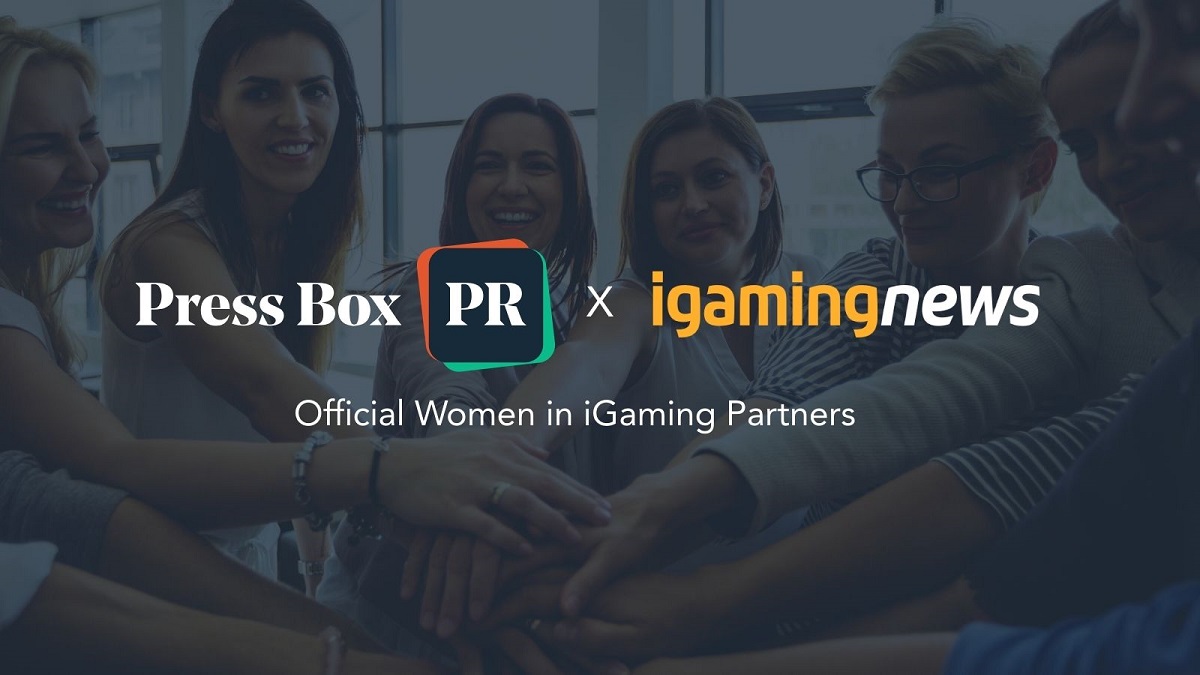
iGaming News is excited to reveal Press Box PR, a top digital and conventional PR firm for the iGaming and sports betting sector, as the official Women in iGaming sponsor of the publication. This collaboration backs iGaming News’ Women in iGaming initiative, a program focused on honoring, showcasing, and elevating the accomplishments of women leaders advancing the industry.
To launch the partnership, iGaming News has unveiled a new category, sponsored by Press Box PR, at its first iGaming News Awards: “Woman of Influence,” highlighting outstanding women who are transforming the industry and fostering innovation.
Abigail Welch, Editor of iGaming News, said: “We are thrilled to welcome Press Box PR as the official sponsor of our Women in iGaming initiative. Their expertise in digital PR will help us bring the incredible stories of women across the industry to a wider audience. This partnership is about celebrating women every day, supporting their achievements and inspiring the next generation of leaders.”
Sarah Williams, B2B account manager for Press Box PR, said: “We’re thrilled to be a part of iGaming News’ Women in iGaming initiative! With International Women’s Day coming up this Sunday as well as March being Women’s History Month, there’s no better time to announce this fantastic partnership. By putting our time, money and effort behind initiatives like Women in iGaming, Press Box PR is showing support all year long, not just on certain days or months.
“While we are certainly seeing more women excelling and leading in the industry, only about 16% of executive-level roles in the sector are held by women, according to the latest 2025 data from the Gambling Survey for Great Britain. I hope that by shining a light on the skilled women in this industry, we can see that representation increase.”
The partnership will feature editorial pieces, interviews, podcasts, and campaign material highlighting women who are shaping history in iGaming, their professional paths, and how they are progressing the industry. Uniting iGaming News’ industry influence with Press Box PR’s digital communication skills and client network, the collaboration aims to amplify women’s voices and enhance recognition for female leaders.
The post Press Box PR Becomes Official Sponsor of Women in iGaming, Backed by iGaming News appeared first on Eastern European Gaming | Global iGaming & Tech Intelligence Hub.
-

 Comatel6 days ago
Comatel6 days agoCOMATEL CELEBRARÁ UNA FIESTA PARA CIENTOS DE OPERADORES TRAS FINALIZAR EL PRIMER DÍA DE LA FERIA ESPAÑOLA, INTERAZAR
-

 Fotini Matthaiou6 days ago
Fotini Matthaiou6 days agoOctavian Gaming Titles Go Live with Novibet in Mexico
-

 Compliance Updates6 days ago
Compliance Updates6 days agoSpillemyndigheden: New Guidance on Responsible Gambling
-

 Amusnet6 days ago
Amusnet6 days agoAmusnet Introduces its “Jackpot Cards Plus” Island at Casino Adjara
-

 Fast Track6 days ago
Fast Track6 days agoFast Track Spark Lands in São Paulo for Advanced Retention Workshop
-

 Betting and Gaming Council6 days ago
Betting and Gaming Council6 days agoBGC: Government Tax Hike Boost for Black Market
-

 Canada3 days ago
Canada3 days agoPointsBet Canada to Contest Proposed 5-Day Suspension by AGCO
-

 Atlaslive6 days ago
Atlaslive6 days agoAtlaslive Shortlisted in Five Categories at GamingTECH CEE Awards 2026






